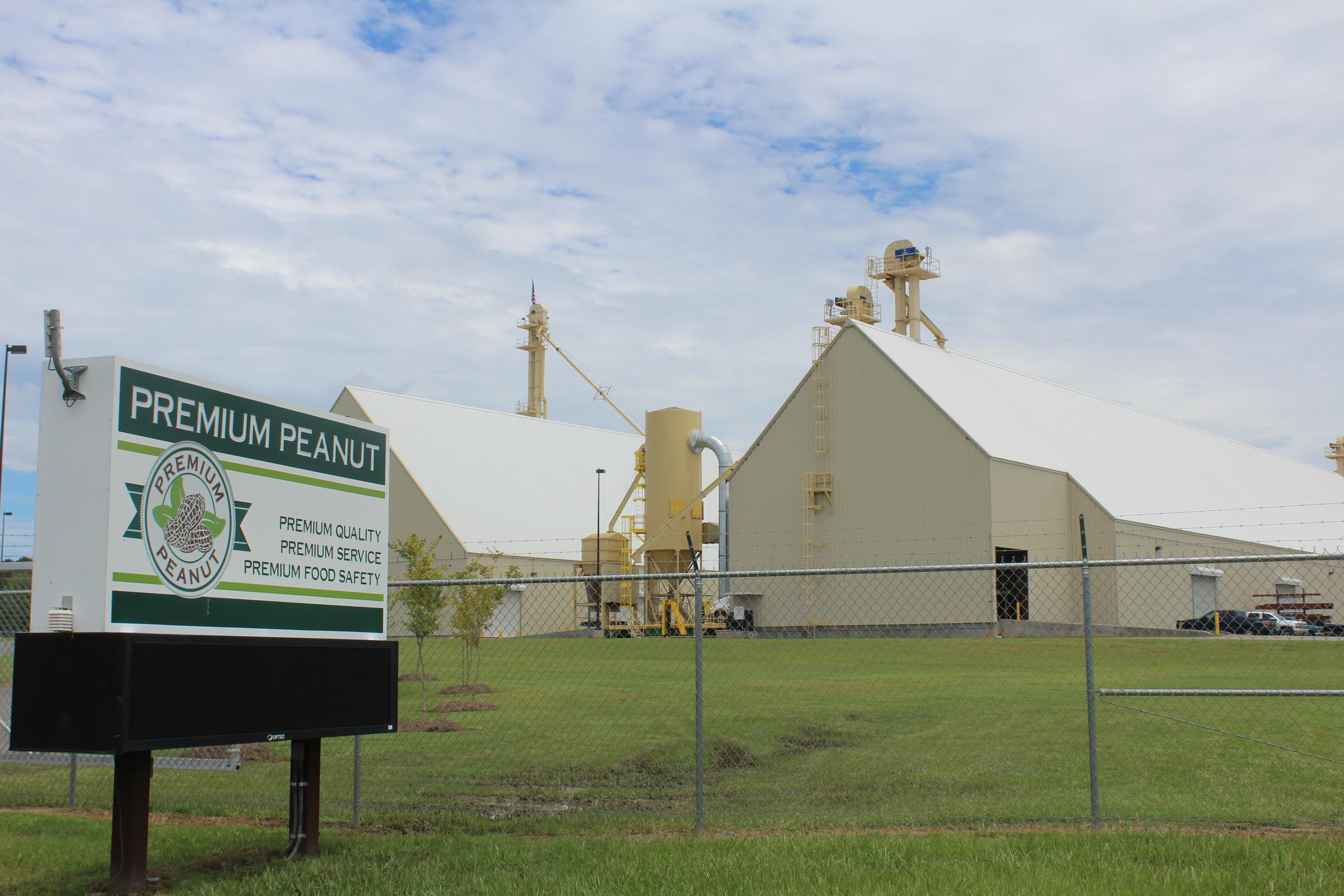A Darling Of South Georgia’s Peanut Industry Struggles To Find Workers

Johnny Kauffman / WABE
A Darling Of South Georgia’s Peanut Industry Struggles To Find Workers
Farmers Drew Walker and Will Ellis are in a 100-acre peanut field, surrounded by rows of green plants sticking up about two feet. On each plant there are about 40 peanuts underground.
The farmers see crows flying above.
“That’s the first tell-tale sign that you’ve got worms coming in,” Walker says.
He and Ellis bend over, whacking the plants back and forth to see what falls off.
“There’s one right here. One right there,” Walker says. “I don’t know what kind he is, but it’s gettin’ about time to start battling some of those.”
Peanut farmers like Walker and Ellis are looking forward to what’s expected to be a record-breaking peanut harvest in Georgia, even after Irma.
In 2015, Georgia produced 57 percent of the United States’ peanuts, more than 1.7 million tons, according to the Georgia Peanut Commission.
There have been challenges, though, for peanut farmers like Ellis and Walker. Pests aren’t the biggest problem, often it’s figuring out how much to plant.
Ellis says he used to spend a lot time worrying about that.
“Beforehand it was a guess. It was a total guess,” he says.
But, it changed when a shelling plant called Premium Peanut opened nearby. It inspired a visit from state leaders.
Ellis and Walker own part of the plant along with dozens of other farmers in the area, and because of that, those farmers are sure how many peanuts to grow each year.
“We’re not wrestling with dips and dives in the market,” Ellis says.
With Premium Peanut, if a farmer buys 100 shares of stock in the plant, they’re expected to deliver say, 100 tons of peanuts that year. It means there’s now a guarantee.
But the company’s success has begun to run up against the challenges of being in South Georgia: there aren’t enough skilled workers to shell the peanuts.
The “Largest” And “Most Technologically Advanced” In The World
Inside the shelling plant, peanuts are tested by shiny new machines. Red, green, and yellow lights flash as the peanuts slide along on conveyor belts.
In another part of the plant they’re blown around inside a clear box like a swarm of bees.
“This plant is the most technologically advanced shelling plant in the world,” says Lee Taylor, an executive at Premium Peanut, adding that the plant is also the largest.
Premium Peanut went from zero to 150 full-time employees in just three years, and it’s hiring more.
“To find a technician that can work on those is tough in this part of the state, it’s tough anywhere, but especially in this part of the rural south,” Taylor says.
He says operating the computers that run the shelling machines takes a lot of training.
Premium Peanut has made it so far by bringing workers in from out of state, and it helped set up a training program at the nearby Wiregrass Technical College.
But CEO Karl Zimmer says there’s still a problem, especially as the shelling plant grows.
“You really have only 10 percent of interested applicants who you feel have the qualifications and skill set to look at to hire,” he said.
For people who are hired, there’s not enough access to health care in South Georgia, Zimmer says.
He says the plant can’t afford for too many people to get sick and miss work.
So, it’s going to pay for a mobile clinic to come to the property.
“We’re going to pay the bill to cover all the fixed costs, and anyone who comes, that’s associated with Premium Peanut that will be here it will be 10 dollars, flat rate, that’s it,” Zimmer says.
The farmer, Will Ellis, says he worries Premium Peanut’s struggle to find workers will keep it from growing.
He hopes a peanut butter or candy plant might one day open up in this rural county.
Premium Peanut has plans to start making peanut oil soon.
Ellis is passionate about the potential for growth in the industry that plays a big part in rural Georgia’s economy.
“Peanut butter is the perfect protein,” Ellis says. “I’ll gauran-d***-tee you I can eat more peanut butter than you can. I eat the s*** every night for supper.”
9(MDAxODM0MDY4MDEyMTY4NDA3MzI3YjkzMw004))








